7.1 KEY GRAMMAR - THE
FUTURE TENSE USING WILL
Englannin
kielessä on monta menetelmää futuurin ilmaisemiseen.
Kun puhutaan aikomuksista tai sovituista asioista
käytetään yleensä kestopreseensmuotoa (kpl 3) tai
"going to"-rakennetta (kpl 5).
Futuuri muodostetaan
käytämällä apuverbiä WILL + pääverbin
perusmuotoa. WILL yleensä lyhennetään ‘ll:ksi,
varsinkin puhekielessä.
Seuraavissa tapauksissa
käytetään WILL-rakennetta:
|
| 1.
Kun haluamme kertoa mitä tulee tapahtumaan
tulevaisuudessa, tai kun ennustamme mitä tulee
tapahtumaan. The winner
of this game WILL PLAY in the finals.
Computers WILL BECOME
better and cheaper.
|
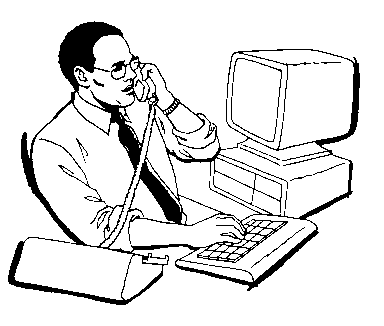 Prices will rise next year.
|
| 2.
Kun kerromme päätöksistä, jotka olemme juuri tehneet
ja jotka eivat olleet suunniteltuja. I think I’LL HAVE a pizza for
lunch.
I’LL FINISH this job
by 4 o’clock.
|
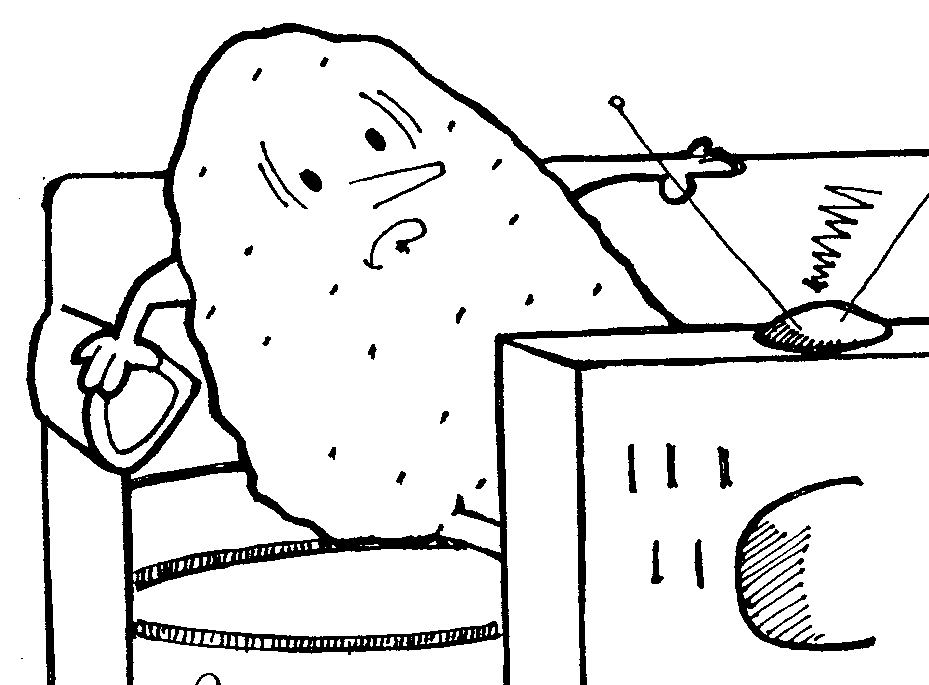 I think I’ll watch TV.
|
| 3.
Kun teemme lupauksen. I’LL
SEND you a postcard from Mexico.
I’LL BE there on time.
|
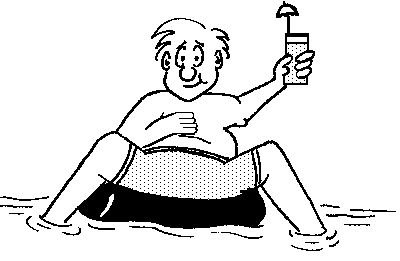 I’ll send you a postcard.
|
| 4.
Kun esitämme ehdotuksen. WILL YOU COME to the theatre with
me?
WILL YOU HAVE dinner with
me this evening.
|
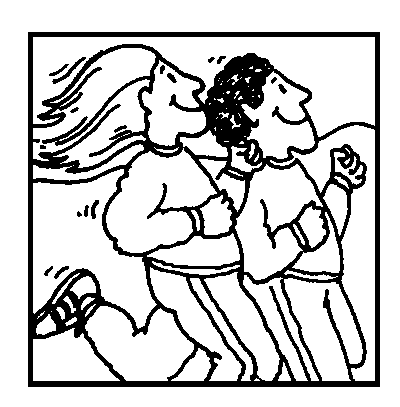 Will you come for a run?
|
| 5.
Kun tarjoamme tehdä (tai olla tekemättä) jotain. I’LL HELP you with your
homework.
I’LL DO the washing
up.
I WON’T make a noise, I’LL
BE quiet.
|
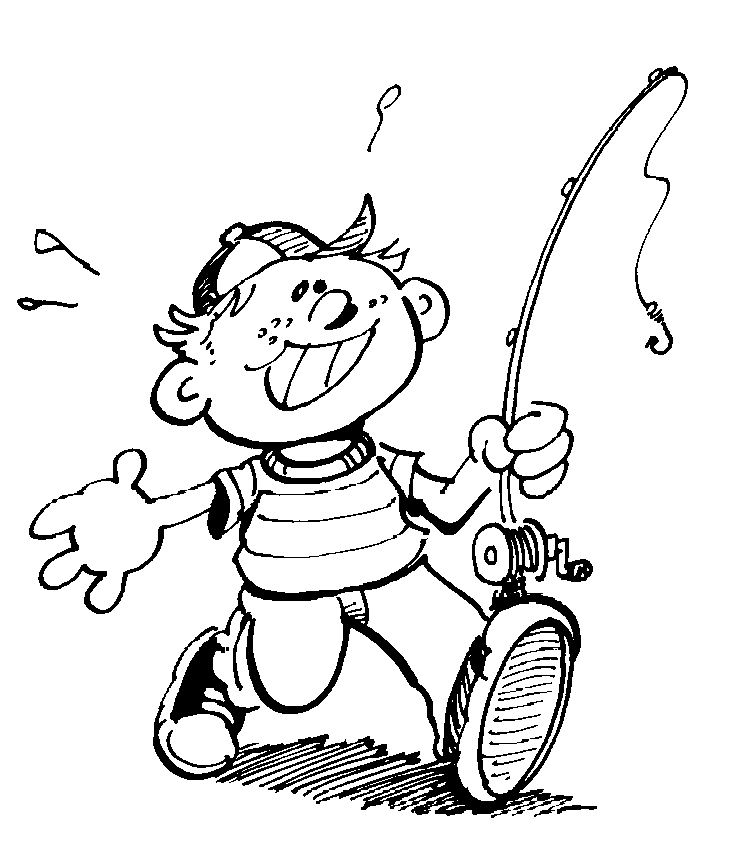 I’ll bring you a fish!
|
POSITIVE
| I |
|
|
|
go |
|
|
|
I’ll go
shopping tomorrow. |
| He |
|
|
|
resign |
|
|
|
He’ll
resign next week. |
| She |
|
|
|
buy |
|
|
|
She’ll
buy a new car next year. |
| It |
|
will
(‘ll) |
|
rain |
|
|
|
It’ll
rain this evening. |
| You |
|
|
|
need |
|
|
|
You’ll
need more money. |
| We |
|
|
|
arrive |
|
|
|
We’ll
arrive at 6 o’ clock. |
| They |
|
|
|
start |
|
|
|
They’ll
start the meeting at 3 o’clock. |
John’ll come to the
airport with us. There’ll be a lot of people at the
football match. Mr and Mrs Smith’ll arrive on Monday
|
NEGATIVE
| I |
|
|
|
be |
|
|
|
I won’t
be in London next week. |
| He |
|
|
|
stay |
|
|
|
He
won’t stay very long. |
| She |
|
|
|
bring |
|
|
|
She
won’t bring her boyfriend. |
| It |
|
will not
(won’t) |
|
snow |
|
|
|
It
won’t snow this evening. |
| You |
|
|
|
sleep |
|
|
|
You
won’t sleep on the plane. |
| We |
|
|
|
meet |
|
|
|
We
won’t meet them this time. |
| They |
|
|
|
understand |
|
|
|
They
won’t understand us. |
Mary won’t be in her
office tomorrow. Jane and Mike won’t stay very long
in Florida. There won’t be many people there.
|
QUESTION
| |
|
I |
|
be |
|
|
|
Will I be
too early if I arrive at 6 a.m.? |
| |
|
he |
|
phone |
|
|
|
Will he
phone us tonight? |
| |
|
she |
|
stay |
|
|
|
Will she
stay here overnight? |
| Will |
|
it |
|
rain |
|
|
|
Will it rain
tomorrow? |
| |
|
you |
|
help |
|
|
|
Will you
help us, please? |
| |
|
we |
|
have |
|
|
|
Will we have
enough time? |
| |
|
they |
|
return |
|
|
|
Will they
return by nightfall? |
Will John be here later?
Will the Smiths come to the party? Will there be enough
room for us?
|
LONG AND
SHORT ANSWERS
| KYSYMYS
SANA / -FRAASI |
|
WILL |
|
SUBJEKTI |
|
VERBI |
|
OBJEKTI/LOPPUOSA |
|
| When |
|
will |
|
my car |
|
be |
|
ready? |
|
| How many
times |
|
will |
|
you |
|
go |
|
to England
next year? |
|
| How long |
|
will |
|
the journey |
|
take? |
|
|
|
| What |
|
will |
|
the weather |
|
be like |
|
in August? |
|
| How much
money |
|
will |
|
we |
|
need |
|
in Mexico? |
|
|
PITKÄT
JA LYHYET VASTAUKSET
| Will you go
to school tomorrow? |
|
Yes,
I’ll go to school tomorrow. |
|
Yes, I will* |
| |
|
No, I
won’t go to school tomorrow. |
|
No, I
won’t |
| |
|
|
|
|
| Will he come
home next week? |
|
Yes,
he’ll come home next week. |
|
Yes, he
will* |
| |
|
No, he
won’t come home next week. |
|
No, he
won’t |
*MUISTA Vaikka
Brittiläiset mieluummin käyttävät lyhenteitä kuten I’ll,
he’ll jne, lyhyen "Yes"
vastauksen kanssa on käytettävä koko WILL sanaa
|
| SHALL Apuverbiä SHALL
käytetään yksikön ja monikon 1. persoonan kanssa (I
ja We) kun kysytään neuvoa tai lupaa:
Shall I
put the milk in the fridge? Laitanko maidon
jääkaappiin
What shall I
buy?
|
7.2 Reading text -
The Weather Forecast
Good evening , here is the
weather forecast
for tomorrow.
| First, southern England.
It’ll be cool and sunny in the morning and
it’ll become warmer in the afternoon. In the
evening there will be some cloud and you can expect scattered showers. Temperatures will be around 8
degrees Centigrade in the morning, rising to 17 degrees in the afternoon. Central England and Wales.
There’ll be frost in some areas this evening, so the morning will be
quite cold in most places. It’ll become slightly warmer by mid-day but heavy clouds will move in from the west and it
will be rainy for most of the afternoon. It’ll be
quite windy and the skies will clear by late afternoon or early evening
and there will be some sunshine. Temperatures will be
around 4 degrees in the morning, rising to about 12
degrees in the afternoon.
|
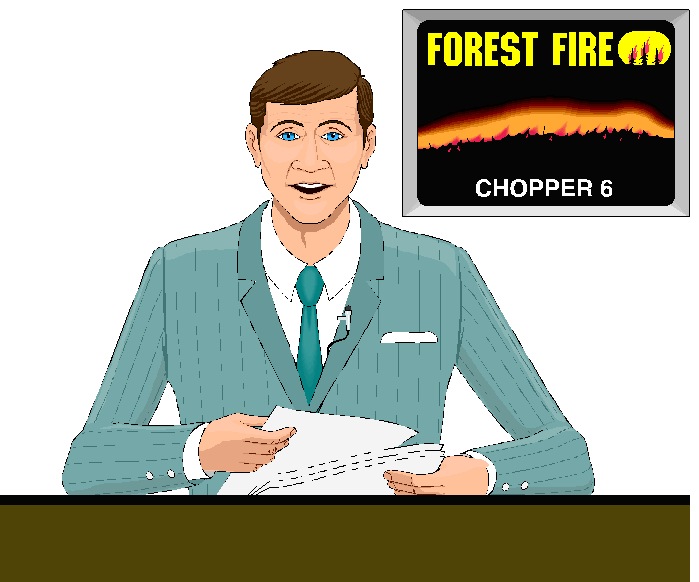 |
 |
Northern England. The heavy
rain of the last few days will continue all day tomorrow. But there is some
good news, towards the evening the clouds will start to
clear and the rain will lessen, and by late evening the skies will
clear and you should have a sunny day on Wednesday.
Temperatures will be around 4 degrees in the morning,
rising to 10 in the afternoon. Scotland. The weather in
Scotland tomorrow will be about the same as today. The
morning will start off sunny but quite cold, but in the
afternoon there will be rain in most areas. There will be
more snow in the Highlands, so at least the skiers can be happy. Temperatures will be
between 3 and 5 degrees in the Lowlands and southern Scotland, and in
northern Scotland and the Highlands the temperatures will
be around zero or minus 1.
|
7.4
Predictions
7.6
Exercise - Making
suggestions
7.7
Pronunciation practice -
Listen and repeat
7.8
KEY GRAMMAR POINT - probably, sure, expect, think
7.9
Quick exercise - Answer
these questions
7.10
Listening comprehension
7.12
KEY FUNCTION British Money
7.13
Pronunciation practice -
Listen and repeat these prices
7.14
Listening comprehension
7.15
KEY FUNCTION - SHOPPING
7.16
KEY GRAMMAR REVISION COMPARATIVE - SUPERLATIVE
7.20 Reading for
pleasure - Howard Hughes , a genius who went mad
| Howard Hughes was one of the
most interesting figures
of the 20th century. He was born on Christmas Eve, 1905
in Houston, Texas, to very wealthy parents
- his father owned a large oil-drilling
company. He was a brilliant
child and was always top of the class at school. After
leaving school he studied engineering at the California
Institute of Technology and at the Rice Institute of
Technology in Houston When he was just 17 his father
died and the young Hughes inherited
$750,000 and became the Managing Director of the family
firm, the Hughes Tool Company. Hughes wanted more from
life than being a businessman and in 1926, at the age of
20, he moved to Hollywood and used his great wealth to
become a film producer.
|
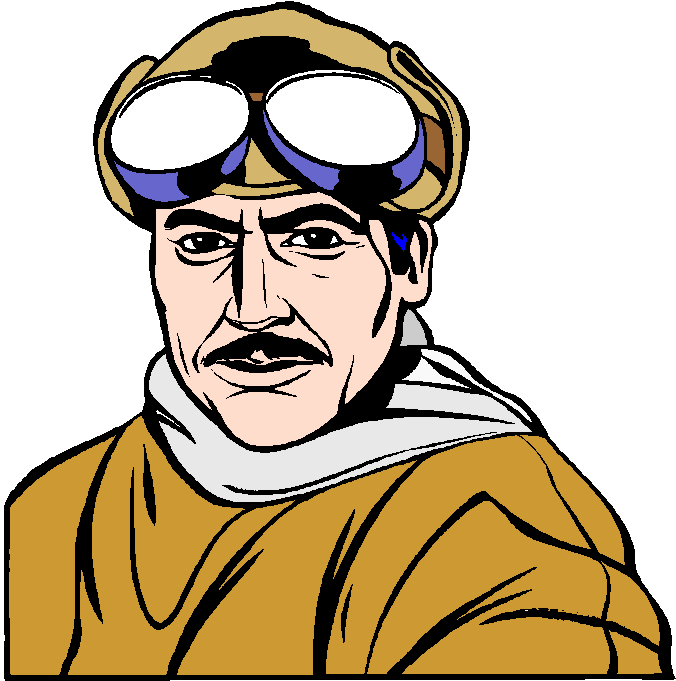 |
| He was just 20 when he married Elli Rice,
but their marriage
lasted less than three years, and they divorced in 1928.
His career as a
film producer was very successful. The most well-known of
his films were "Hell’s Angels", in 1930,
and "The Front Page", one year later. In 1941
he made a film called "The Outlaw", which created a
scandal. The film starred the actress Jane Russell. The great love in Howard Hughes’ life
was aviation. He
was fascinated
by aeroplanes. He loved flying them and he also used his
engineering skills to
design them. In 1933, while he was living in Hollywood,
he worked as an airline pilot - he changed his name for
this job because he wanted it to be a secret. Hughes was the founder of the Hughes Aircraft Company and he
started to design planes. As a pilot he broke many speed
records - and in 1935 he
became the fastest pilot in the world when he flew at 563
km/h. He also set a record for flying round the world -
he did it in 91 hours and 14 minutes in 1938 and
President Roosevelt gave him a special aviation award. During the Second World War he designed
and manufactured war planes. Perhaps the most famous
plane he designed was the eight-engined flying boat, The Spruce Goose, designed to carry 750 passengers - it
flew just once.
|
|
| Hughes
had a wide range of business interests - he controlled
Trans World Airlines from 1959 until 1966 and he owned
many hotels and casinos in Las Vegas. In 1958 he disappeared
from public life and lived in complete seclusion.
He did all his business through a close circle of associates.
He became paranoid
about germs and
lived in complete privacy and security in luxury hotels. He ate very
little and used a lot of drugs.
On April 5th, 1976, while in an
aeroplane travelling from Mexico to Texas, his heart
finally stopped beating - the drugs he used had killed him. He
left over 2 billion dollars.
|
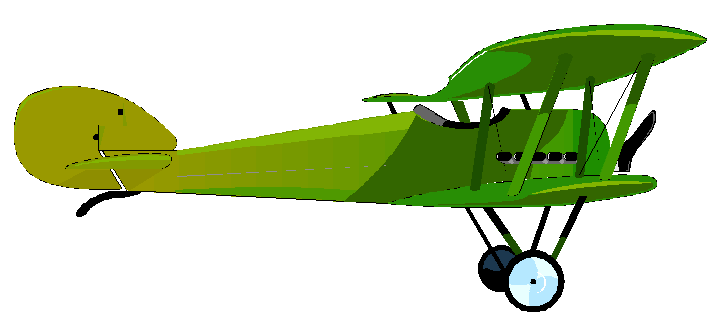 |
Takaisin alkuun
Takaisin etusivulle








